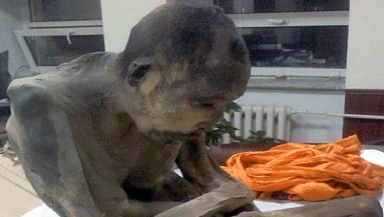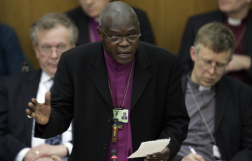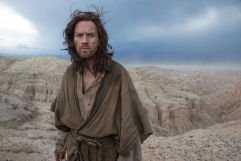
Jesus said to them: "The wedding guests cannot fast while the bridegroom is with them, can they?" (Mark 2:19)
Mongolian scientists are examining the body of a 200-year-old mummified monk some Buddhists claim is still alive.
The figure, in a cross-legged lotus position, was found in the Mongolian capital, Ulan Bator, The Daily Telegraph has revealed. One Buddhist expert was reported as saying that the monk's posture proves "that the lama is not dead, but is in a very deep meditation". Which would be one extremely long fast, to say the least.
Implausible though this story is, it does remind us how some of the classic spiritual disciples – meditation, fasting and so on – are often more associated with eastern religions than with Christianity, especially in the West.
And at first sight, that impression seems to be something that Jesus himself would welcome. Some people come up to question him (Mark 2:18-20) about the fact that while various other religious groups were fasting, Jesus' disciples were not.
Jesus responds: "The wedding guests cannot fast while the bridegroom is with them, can they? As long as they have the bridegroom with them, they cannot fast."

Jesus is comparing his ministry and his presence to a marriage celebration at which he is the husband. What guests would turn up to a wedding reception and not eat anything? Similarly, he is saying, as the coming of God's kingdom is inaugurated through him, the last thing he wants is for everyone to be solemn and miserable; it's meant to be like a party.
He's also drawing on Old Testament pictures in which the people of God were portrayed as God's bride – a bride that was fickle, unfaithful and forever running off with others, but eventually to be wooed and won back again. Implicit in the picture is that God is the husband – and for Jesus to apply that language to himself is a pretty massive claim.
So Jesus' coming is a time for feasting, not fasting. But does that mean the end of the idea of abstaining from food? Not really, because this is how Jesus goes on: "The days will come when the bridegroom is taken away from them, and then they will fast on that day." After Jesus' death – that is when they will return to the practice of fasting to seek the presence of God.
In fact, when you read the Sermon on the Mount, Jesus assumes that authentic discipleship will involve fasting – for he tells his hearers, "When – not if – you fast..." (Matthew 6:16). What he does then do is to warn against making a big show of it.
Why fast – whether from food, TV or the internet, for example? Fasting humbles us, can be an expression of repentance, and is a way of growing in godliness through self-discipline. A Church of England homily of 1562 states that the first end of fasting is to enable the body to be "tamed and brought in subjection to the spirit". Fasting also creates more time for prayer.
But we need to remember that fasting is about honouring God, rather than to make us feel good about ourselves. In Zechariah 7:5, God challenges his people: "When you fasted and mourned in the fifth and seventh months for the past 70 years, was it really for me that you fasted?" And John Wesley declared: "Let us beware fancying we merit anything of God by fasting. Fasting is only a way which God has ordained wherein we wait for his unmerited mercy, and wherein without any desert of ours, he hath promised to give us his blessing."
There is a time for feasting and a time for fasting. When will you do both, and why?
David Baker is a former daily newspaper journalist now working as an Anglican minister in Sussex. The Rough Guide to Discipleship is a fortnightly devotional series.

















